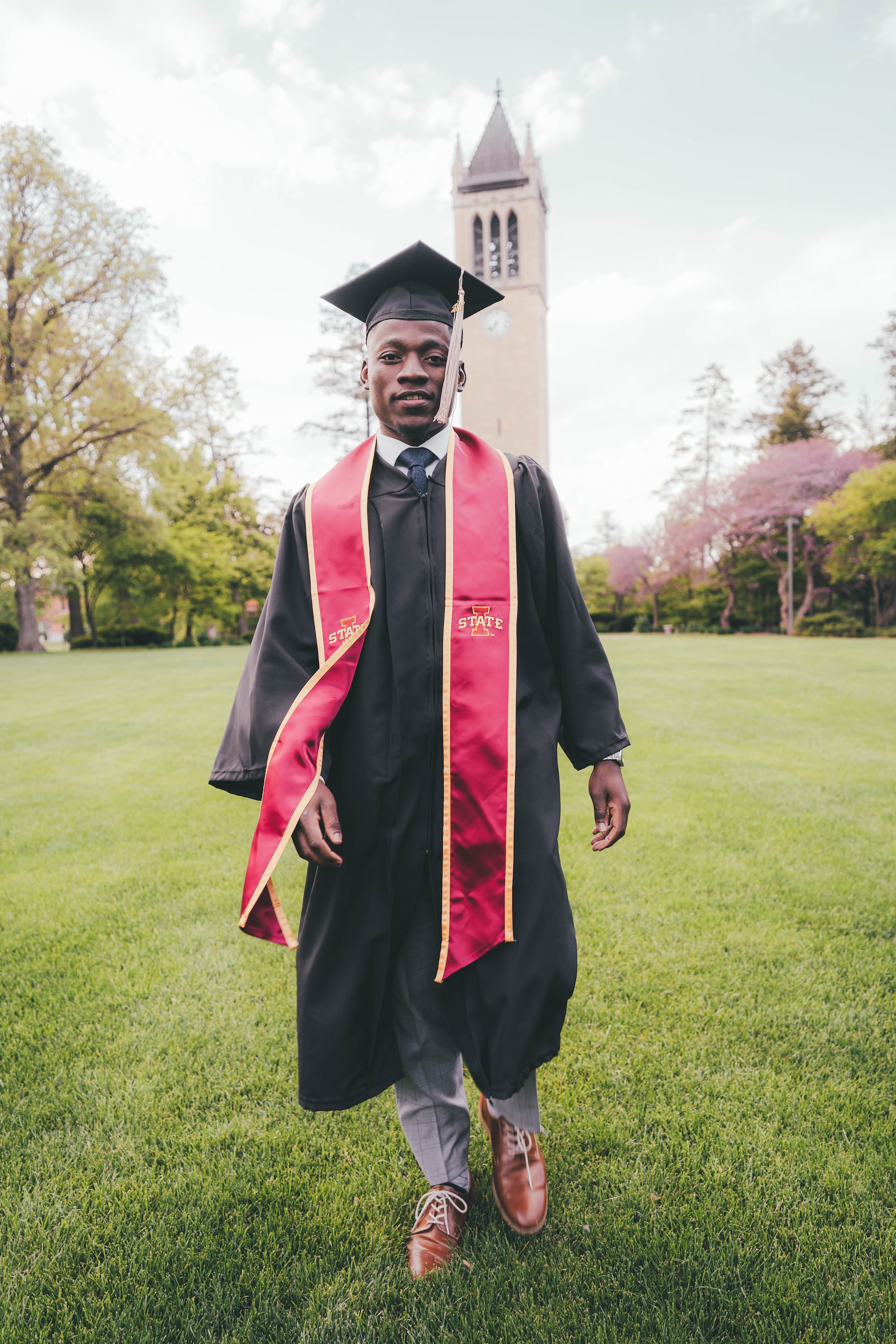Problems In Nigerian Universities - Challenges And Opportunities
In Nigeria, pursuing an education has almost become a necessity if one wants to land or advance in a given type of job.
This puts a lot of pressure on Nigeria's higher education system, so this article looks at problems in Nigerian universitiesand possible solutions.
The Joint Admissions and Matriculation Board (JAMB), which is in charge of setting the requirements for getting into Nigerian colleges and universities, says that the number of people who register and take the UTME keeps going up.
Given the value of education and the role it plays in a nation, Nigeria's strong demand for education should receive the attention it merits in order to bring its universities on pace with those found across the world.
Nigeria unfortunately does not rank among the top 1000 universities in the world according to the most current rankings.
However, no other university in Nigeria is placed higher than the University of Ibadan, which is in 1099th place.
Professor Abubakar Rasheed, who is the Executive Secretary of the National Universities Commission (NUC), says that our higher education system needs major changes.
Nigerian Public University Issues
The System Of Education Is Outdated
When the University of Ibadan changed from a college to a university in the 1960s, the system that is still used in Nigerian universities today was put in place.
It was the first university to be founded in Nigeria, and the same academic traditions from the 19th century are still used today.
To keep up with the current international standards, there is a severe dearth of innovation.
Elementaryand secondary education of poor quality One of the jobs of the Joint Admissions and Matriculation Board (JAMB), according to their website, is to "put candidates who are qualified enough into higher institutions."
Current statistics and the steady lowering of the cutoff point for prospective university students indicate that the quality of education in elementary and secondary schools is deteriorating. This causes Nigerian universities a serious challenge.
Striking Behavior
Financial disputes between the government and the different staff unions, student excesses like riots, and other problems that lead to strikes or temporary closures of universities threaten the survival of organizations and affect both staff and student performance.
Cheating And Plagiarism
Universities in Nigeria frequently experience this issue. Along with a lack of enthusiasm of their own, pupils frequently lack the tools necessary to foster creativity.
The point of education is lost because they can't learn, understand, or think.
Brain Exodus
As colleges lose academic expertise to other sectors for economic or political reasons, this is happening more frequently these days.
Brilliant professors often leave academia because it is hard and go into other fields that pay better or go abroad to find better jobs.
Cultish Behavior
This has long been a significant problem for universities in Nigeria. People have said that there are cults on campuses all over the country, and that their activities often lead to social disasters and crises that hurt academic progress.
Examinee Misconduct
In Nigerian institutions, this unsettling problem has all but become standard practice. It is one of the effects of the subpar quality of secondary school graduates.
Also, the fact that a lot of students who aren't ready for college are accepted leads to them doing very wrong things like trading money or sex for grades.
Poor Strategic Planning
One of the biggest problems Nigerian universities are facing is a lack of a solid strategic strategy.
Plans that span the unit level, the department level, and other areas of the institution are lacking in many Nigerian universities.
At the many institutions of Nigerian universities, there is no overarching mission, vision, or set of goals. Some universities don't have a strategic plan to guide them, which makes them disorganized and hard to keep track of.
Additionally, there are no strategic plans in place for the development of curricula, forecasting student enrollment, planning and development of manpower, infrastructure development, or financial management of universities.
Universities' academic curricula are not well thought out. Due to a lack of efficient strategies, academic programs are poorly implemented in universities. Few university administrators in Nigeria work together to achieve their strategic goals.
Bad Leadership
The vice chancellor's leadership style is another issue affecting Nigerian universities.
Without following due process, many university leaders in Nigeria emerged. Politicians choose them for the position.
They lack the qualifications to manage academic institutions like those put up by universities.
They don't have the management, leadership, and skills to make changes in universities that will last.
There are several challenges facing the university system, some of which have an impact on system performance.
These challenges include insufficient money, poor curriculum coordination, issues with leadership, and a lack of infrastructure, to name a few. Some university administrators are autocratic, dishonest, and rigid in their approach to school administration.
Learning And Teaching Activities That Are Ineffective
In Nigerian colleges, the quality of instruction and learning is subpar, making it impossible to ensure that instruction is effective.
While the number of students enrolled increases along with the size of the country, there is not a corresponding increase in the number of staff members. As a result, the student-teacher ratio becomes unmanageable.
For instance, the Faculty of Law at the University of Nigeria, Nsukka, once recorded a student-teacher ratio of 104:1, as opposed to the 29:1 suggested for the 2002/2003 semester.
Because personnel and material inputs do not increase in tandem with student enrollment growth, the quality of education or learning and teaching suffers as a result. Instead, institutions must contend with deteriorating facilities and declining inputs.
In contrast to the minimum required unit cost per student per year of $1,000, the government set aside $362 for each student in the year 2000.
Subpar Research Activities
The research income per academic and research staff member, research revenue per institutional income, and the number of papers per research income at Nigerian universities are among the lowest in the world.
Poor research has been conducted in Nigerian universities.
The government's bad attitude toward research and insufficient support of research projects
Others noted that research programs in universities in Nigeria do not give it the priority it needs.
Universities perform a variety of tasks, including conducting research projects and using the results to address the nation's social, economic, and political problems.
Many young researchers don't do research because there aren't enough funds or good research programs.
Facilities With Inadequate Infrastructure
One further significant barrier to the growth of higher education in Nigeria is the issue of insufficient infrastructure. Our institutions' infrastructure facilities and lab equipment are in poor shape and, in many cases, even out of date. Learning and research activities are hampered by the lack of all the resources needed for the creation of education. It's terrible how little infrastructure there is in universities, which makes for a poor setting for learning. Students today study in deteriorating structures.
Insufficient Funding
Another significant issue impeding the development of Nigerian universities is insufficient funding and the governmentcan't afford to invest more money.
Future Directions For Sustainable Universities
Even with the aforementioned difficulties, if the appropriate steps are taken, there is still hope for the rehabilitation and sustainability of Nigerian colleges.
The actions listed below are ideas for moving forward.
Effective Leadership
Effective leadership must be provided for Nigerian institutions in order to maintain the growth of their educational missions.
The leader must be trustworthy, knowledgeable, and use contemporary management leadership techniques
He or she must possess a vision and be willing to adapt to changes in the system.
The effective use of both people and material resources in achieving the institutional goals and objectives should be done in order to maintain the administrator's performance.
The skills of the leaders have a significant impact on how long Nigerian universities are able to provide quality education.
Therefore, choosing university administrators should be focused on what they can provide the system.
For Nigerian universities to develop, financing is absolutely necessary. According to experts, the amount of money spent on education at the government level needs to be increased to at least 15% of all expenditures.
The 36 state governments must also be prepared to allocate 15% of their annual budgets to education.
The most recent book editions need to be kept on hand at libraries. The nation's universities must have access to appropriate funding and properly equipped school laboratories.
Defeating Academic Fraud And Corruption
The fight against all sorts of corruption and fraud activities in the system can also help the Nigerian university education system flourish. There is a need to combat corruption in the university environment on all fronts.
Increasing Research Quality
Enhancing universities' capacity for research is another way to improve their educational offerings.
Approximately 40% of university programs are research-based. The NUC should develop guidelines for conducting research in a university setting.
There should be regulations on how many journals Nigerian institutions must publish each year and how many papers university teachers with foreign co-authors must produce each year.
Making research and development the focal point of activities related to public university education should be a conscious effort.
Given the issues Nigerian universities are currently facing, it is crucial to make research the focal point of university education.
Research in higher education helps people find the right way to think about values so that they can survive and so that society as a whole can survive.
International Student Attraction
The NUC needs to come up with a plan to attract international students to universities in Nigeria.
Scholarships for some residents of poor nations in Asia and Africa should be part of such plans.
If the government can implement the proper policies, Nigerian universities will draw in more foreign students.
Nigerian University Rebranding
The NUC ought to establish a division to promote and publicize Nigerian universities abroad. Every state in Nigeria has an agent promoting a number of foreign colleges.
The popularity of the university is one of the factors taken into consideration while ranking universities.
If Nigerian universities aren't well-known in other parts of the world, they won't be taken seriously and will always get fewer votes in the global rankings of universities.
Sufficient Infrastructure Facilities Are Available.
The government must provide the necessary infrastructural facilities in order to position Nigerian universities' educational systems for sustainability.
Adequate physical resources must be made available in accordance with the programs being offered, and the caliber and sufficiency of classrooms, libraries holding current books and periodicals and other learning resources, well-equipped laboratories, and information technology providers should be evaluated on a regular basis.
The budgetary allotment ought to be sufficient to cover the ongoing expense of teaching materials. Universities should increase their reliance on internal sources of income generation.
Nigeria's higher education systemneeds to be fixed, and the NUC's decision to form a committee to bring back the Nigeria University System (NUS) is a good step in the right direction.

5 academic problems you will Face in Nigeria University nobody will tell you about.
People Also Ask
What Are The Problems Facing Nigerian Universities?
Among the difficulties are insufficient funding, failing infrastructure, brain drain, and academic autonomy.
According to the findings, it was advised that the government give colleges more money so they can work more efficiently on a daily basis.
What Are Some Of The Challenges Facing Universities Today?
The problems and dangers that face today's schools and universities are unparalleled.
Some of these are fewer people going to college, higher tuition and student loan debt, the rise of other college options, and political participation.
What Are The Challenges Students Face In University?
- Panic episodes, test anxiety, general anxiety, or social anxiety.
- Family issues or expectations.
- Depression, a lack of ambition or energy, a feeling of helplessness, being overworked, a low sense of self-worth, homesickness, and loneliness are all signs of mental illness.
- Relationship problems (emotional and physical aspects of intimate relationships)
Conclusion
The university education system is arguably the only organization in charge of producing and nurturing the human capital necessary to meet the needs of the country.
The fact that these problems are present in Nigerian university education is alarming.
The government must be prepared to confront the issue of the inadequate strategic plan and poor implementation of the strategic plan at the universities if Nigerian institutions are to restore their former grandeur and continue to exist.
The system's issue with ineffective leadership will be helped by the provision of effective leadership.
In order for university administrators in Nigeria to offer the essential facilities, it is also advised that the government enhance financing for higher education. Additional funding should also be given to the universities' research programs.
A riot act of academic ethics should be passed and signed in order to combat academic corruption and fraud at the source.


